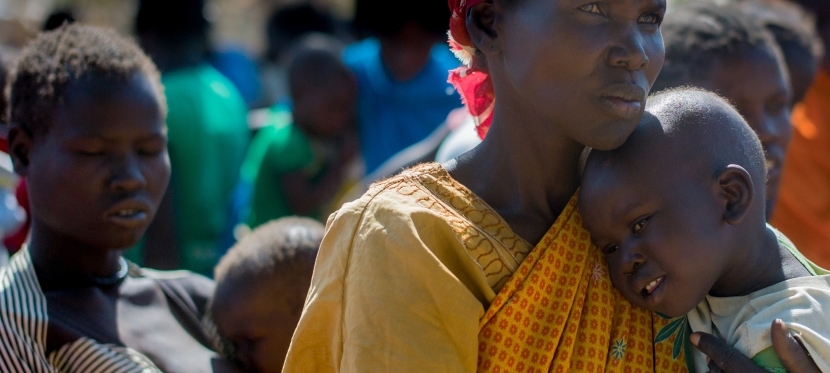An international organization called on all parties to the conflict in South Sudan to allow unhindered humanitarian access to people in desperate need of aid.
Around 6.4 million people are currently at risk of hunger in South Sudan according to a recent Integrated Food Security Phase Classification (IPC) report. Out of those, an estimated 1.6 million people are already facing extreme hunger.
In a statement extended to Radio Tamazuj Wednesday, the Norwegian Refugee Council (NRC) blamed conflict for extreme hunger as the food crisis worsens in South Sudan.
“Despite the peace agreement signed five months ago, conflict continues to impact the lives of hundreds of thousands of people. Not just by the daily torment of fearing guns and violence, but by the daily torment of feeling hungry and watching your child suffer from starvation,” said Sirak Mehari, acting Country Director for the NRC in South Sudan.
The latest IPC report predicts that by July, a total of 6.8 million people, 60 per cent of the population, could face acute food insecurity if aid is not increased and distributed in time.
“While poor rainfall has contributed to the food insecurity, many people have had to flee their farms because of fighting, others are telling us that they are too afraid to cultivate their fields. Insecurity is also preventing many people from going out fishing. The result is a lack of food and extreme hunger,” Mehari explained.
“In addition, civilians must be allowed to safely cultivate their fields, go fishing and engage in other livelihood activities, so that we can avoid the repeated cycles of food insecurity that have been ravaging South Sudan for years," Mehari said.
The NRC urged governments and donor agencies to step up funding for humanitarian aid for South Sudan, in order to save lives.




